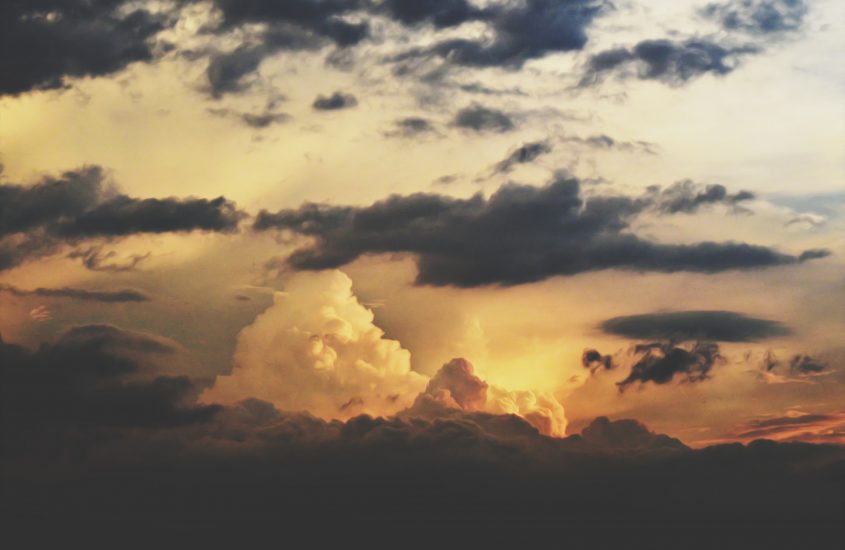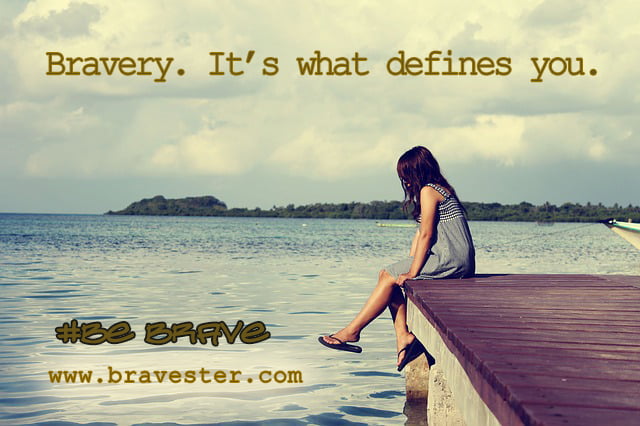The Brave Decisions That Define You–You Have A Choice, Even If You Are on Death Row

Love is the motivation for righteousness and justice. Love cannot be separated from righteousness and justice. They are deeply woven together. Since God is love (1 John 4:16) then it makes even more sense that righteousness and justice are the foundation of God’s throne.
Justice does two things at once. It condemns the unfair systems that distort the truth and it pronounces a verdict that we are all worthy.
Me. You. Not based on color or class or wealth. We are all worthy to be loved. We are all worthy of this life. Our fundamental humanity is never in question. No matter what we’ve done.
This is the testimony of Ray Hinton’s life. In his autobiography, The Sun Does Shine, he goes into great detail of how the justice system did not treat him fairly during his trial. He shares the details of being black in Alabama and being poor.
Ray also goes into details about life on death row. You can feel the dirt, the heat, and the hopelessness. You can smell the smells you won’t forget. This was especially hard for me imagining just some of this for my boys in prison.
Note: In this marathon of changing the systemic racism that has been exposed in 2020, one of the things I’m asking of everybody is to start seeing the systems in play. Like Ray’s story. This is a good beginning. Remember we are in a marathon. Do as Beth Moore strongly advises, “Outlast THEM.” To read about this injustice is uncomfortable. Stay in it. Outlast THEM.
If you’re gonna let a little name-calling keep you from standing up for what you believe according to the Word of God is gospel truth, you ain’t ready. White supremacy has held tight in much of the church for so long because the racists outlasted the anti racists.
— Beth Moore (@BethMooreLPM) August 6, 2020
Outlast THEM.
On page 2, Ray Hinton shares about the decision that changed his outcome.
You don’t have to be locked up to occupy your mind and your days trying to rewrite a painful past or undo a terrible tragedy or make right a horrible wrong. But pain and tragedy and injustice happen—they happen to us all. I’d like to believe it’s what you choose to do after such an experience that matters the most—that truly changes your life forever.
Ray Hinton, THe Sun Does Shine, p. 2
In a deeper darkness that I can barely imagine, Ray Hinton found a way to gain power in his life.
When something unfair happens to you, don’t you want to gain some power back in your life? Don’t you spend time (often too much time) scheming how you are going to show you-know-who that you are not what she thinks you are. That you are better than what he thinks. That you are not those words spoken over you. That you will get revenge some day. (Be honest, those thoughts of revenge that you know you shouldn’t have do take up more mind space than you want to admit.)
I know for one of my boys in prison, the feeling of powerlessness is what wrecks his mind the most.
During one night of many nights on death row, Ray Hinton found his power.
“Oh my God…please help me. I can’t take it. I just can’t take it anymore.”
I snapped out of my imaginings and listened to the man crying. He didn’t say anything else, but the sobbing was deeper. Heavier. Did he really believe God was going to help him? There was no God in this place. There was no choice but to take it until you couldn’t take it anymore or they killed you. God may sit high, but he wasn’t looking low. He didn’t see us here. There was no light in this dark place, so there was no God and no help and no hope.
I said all this in my head, but I couldn’t drown out the sound of his crying. I tried going back to (daydreams of) McGregor (the prosecutor), but the man’s crying was so low and deep it seemed to pound inside my chest like when someone has the bass turned way up on their stereo. It wasn’t my problem. It was every man for themselves on the row, and I didn’t trust anyone. I would never trust anyone again. People lied. People sold you for money. People didn’t care about the truth, so I didn’t care about people. The only people for me were the ones who showed up every week to visit.
I sat up out of bed and began pacing the few feet I had room to walk around in my cage. It was steps from my toilet to my cell door.
One. Two. Three. Four. Five.
I counted them out in my head and then turned around and counted them again as I walked to the back of my cell. Then turned around again. Eventually, he would stop crying and I would go back to my bed, but I couldn’t lie there while he sobbed like an animal who had his foot caught in a trap.
“God help me. Oh God. I can’t take it. I can’t, I can’t, I can’t…” The man was crying and moaning, and I could do nothing but count and walk and turn and count and walk and turn. Over and over again.
One. Two. Three. Four. Five.
…The man started crying again, and I realized that I was crying too. I sat down on the edge of the bed, and I wept silently for a man I didn’t even know, who was most likely a killer, but who also wept in the dark, all alone, in a cage, in Atmore, Alabama. You didn’t have to be on death row to feel all alone, and I knew there were people all over the world, at this exact moment, sitting on the edge of their beds and crying. Most days it seemed like there was more sadness than sense in the world. I sat there for a few more minutes, listening to the other man crying.
Lester (best friend) had choices, and I was glad he was making them. I thought again about all the choices I didn’t have and about freedom, and then the man stopped crying and there was a silence that was louder than any noise I’d ever heard. What if this man killed himself tonight and I did nothing? Wouldn’t that be a choice?
I was on death row not by my own choice, but I had made the choice to spend the last three years thinking about killing McGregor and thinking about killing myself. Despair was a choice. Hatred was a choice. Anger was a choice. I still had choices, and that knowledge rocked me. I may not have had as many as Lester had, but I still had some choices. I could choose to give up or to hang on. Hope was a choice. Faith was a choice. And more than anything else, love was a choice. Compassion was a choice.
“Hey!” I walked up to my cell door and yelled toward the crying man. “Are you all right over there?”
There was nothing but silence. Maybe I was too late.
“Hey, you okay?” I asked again.
“No,” he finally answered.
This part of the story, by happenstance in the middle of the book, is so riveting. Out of his personal darkness, Ray chose compassion and the atmosphere changed.
“It was silent for a few moments, and then the most amazing thing happened. On a dark night, in what must surely be the most desolate and dehumanizing place on earth, a man laughed. A real laugh. And with that laughter, I realized that the State of Alabama could steal my future and my freedom, but they couldn’t steal my soul or my humanity. And they most certainly couldn’t steal my sense of humor. I missed my family. I missed Lester. But sometimes you have to make family where you find family, or you die in isolation. I wasn’t ready to die. I wasn’t going to make it that easy on them. I was going to find another way to do my time. Whatever time I had left. Everything, I realized, is a choice.” –Ray Hinton, The Sun Does Shine, pp. 141-148
You have the power to choose. You have the power to choose compassion or destruction.
As I wrote to Kenneth in our message exchange,
When you make a commitment to justice it does two things: it condemns the unfair systems that distort the truth and it treats everyone as worthy.
You have seen injustice time and time again. You have lived through situations that are not fair. When anyone faces an injustice—whether it is with a corrections officer or an insurance company denying coverage—we all have a choice to make. Do we treat the other as unworthy or worthy? Do we judge the unjust one as unworthy because that unjust one represents a broken system? Or can we bravely see and feel the injustice and still treat the other as worthy? Could treating the other as worthy bring about justice? Could treating the other as worthy bring change? This is the hard work of justice.
The other cannot define you. The other cannot take away your worthiness. You define yourself with your choices. The other may always judge you as an “animal felon.” Your choices aren’t going to change that judgment. Nor is that other in a winning position. The other is the guilty one of injustice.
You are the one deciding if you are guilty.
By loving and respecting everyone in your sphere, you are bringing about justice. You are not being institutionalized. You are not “giving in to the man.” You are using the power that you have to not let that other define you.
Proverbs 21:15 says Justice is a joy to the godly, but it terrifies evildoers. This is where your power is.
Imagine the decisions Kenneth faces as he lives amongst so much unfairness.
Imagine the decisions you are being called to make as you read this.
The power to choose compassion is full of vulnerability. That other is not in your control and that other has already hurt you deeply.
Your power is to choose justice which then deems that other as worthy. This is my brave choice that I hope defines my life.
I love a God who will right all wrongs, who will repay all evil, and who will balance the scales of justice perfectly–in his own time. This is also my power. My ability to choose a Savior who is not me. My ability to choose a Savior who I trust to balance the scales.
In that unfairness that has smashed my heart, I still have power. What will my choices be?
What will your choices be?

This is part 4 of a 6-part series trying to wrap our vulnerable minds around how God makes the unfair things fair. Does God really love us when something unfair happens? When God feels the darkest, how can he really be there?
- Part 1 – Looking Into the Darkness to Find God
- Part 2 – The Darkness of God
- Part 3 – In God’s Darkness is Where What is Unfair is Made Fair
- Part 5 – Our Hope in the Midst of Darkness
- Part 6 – I Love This Momma God Who is Intervening on My Behalf
Photo credit by Palash Jain on Unsplash





Comments
Trackbacks & Pingbacks
[…] Part 4 – The Brave Decisions That Define You–You Have a Choice, Even If You are On Death Row […]
[…] Part 4 – The Brave Decisions That Define You–You Have a Choice, Even If You are On Death Row […]
[…] Part 4 – The Brave Decisions That Define You–You Have a Choice, Even If You are On Death Row […]